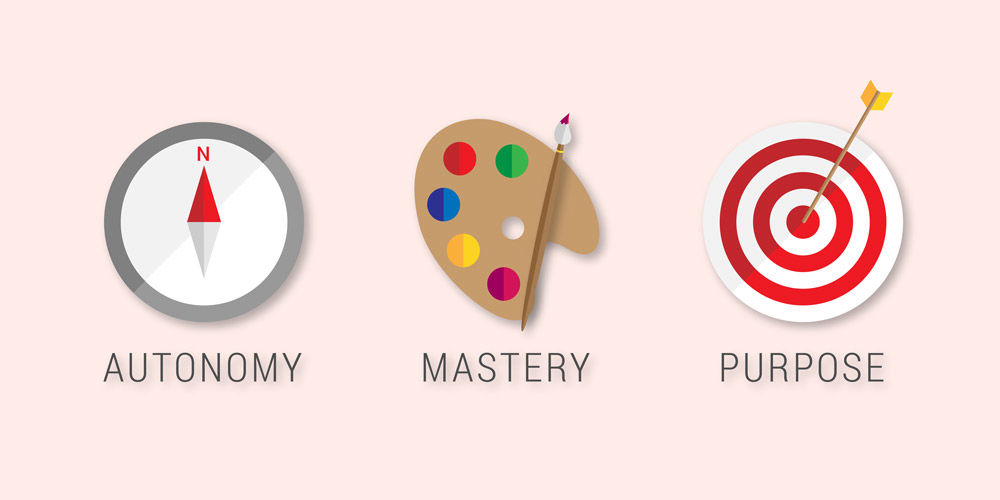What Drives Us
Autonomy
The desire to direct our own lives.
Mastery
The urge to get better and better at something that matters.
Purpose
The yearning to do what we do in the service of something larger than ourselves.
From DRIVE , Daniel Pink.
An idea worth spreading
Motivating is a critical aspect of leadership in any field, but especially important in health care. Health care is delivered in teams, and most of the time, the individuals on the team report to different people. Traditional rewards (or punishments) are often unavailable (and probably ineffective at changing long-term behavior). The skills of influencing and motivating are key to building and nurturing a great team.
Many of you have found the work of Daniel Pink highly instructive. In his book Drive: The Surprising Truth about What Motivates Us , Pink dispels the myth that extrinsic factors, such as a financial reward or punishment, are effective motivators. Instead, he writes that intrinsic motivation is a much more successful and sustainable. Specifically, leaders should focus on offering autonomy, mastery, and purpose to increase performance and employee engagement.
The puzzle of motivation
If you haven’t seen it before, we—and over 18 million other viewers—encourage you to watch it.
No time for a TED Talk? Read the HBR article here.
Mari Ransco
What if a patient described their care team as “incredibly competent, experienced and collaborative”*? Those are the adjectives used by a patient to describe their surgery at South Jordan Health Center. As the nurse manager of South Jordan’s surgical services, Brent Klev works to ensure that every patient has that experience. Here, Klev shares three ways he fosters a culture of teamwork through shared purpose.
We begin every Accelerate interview by asking about a person’s intrinsic motivation to work in health care, lead a team, or make a change. In other words, we always start with “why.”
Being new is hard. Often for new faculty, it means adjusting to a new state, new team, new patients, and a new organizational culture. We asked hospitalists Ryan Murphy and Valerie Vaughn and surgeon Ellen Morrow for tips that only come from a little time under the belt.
